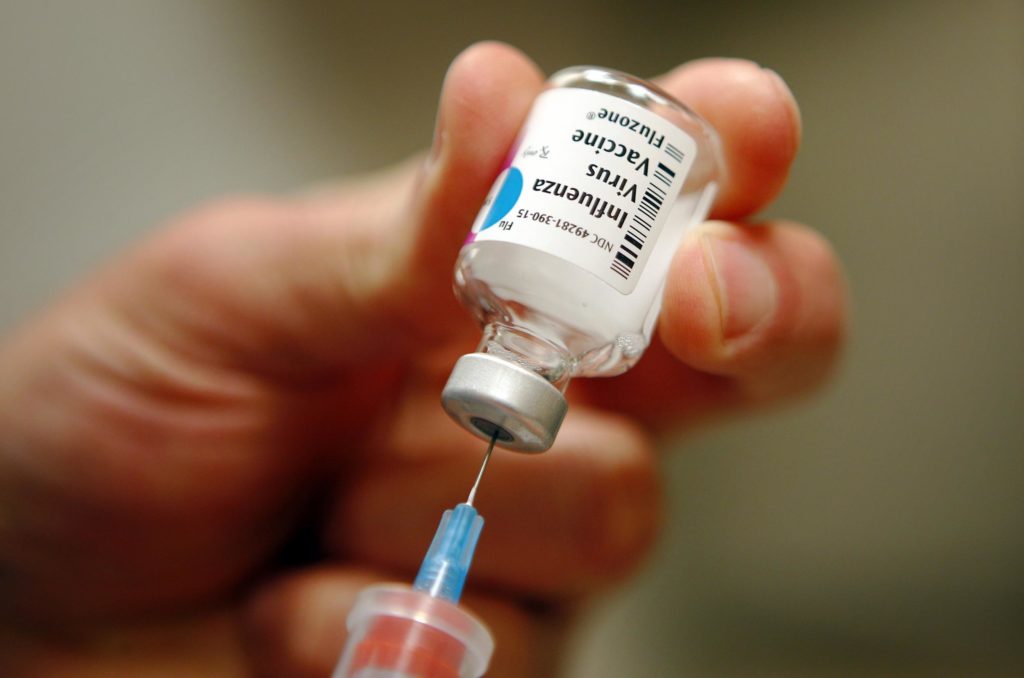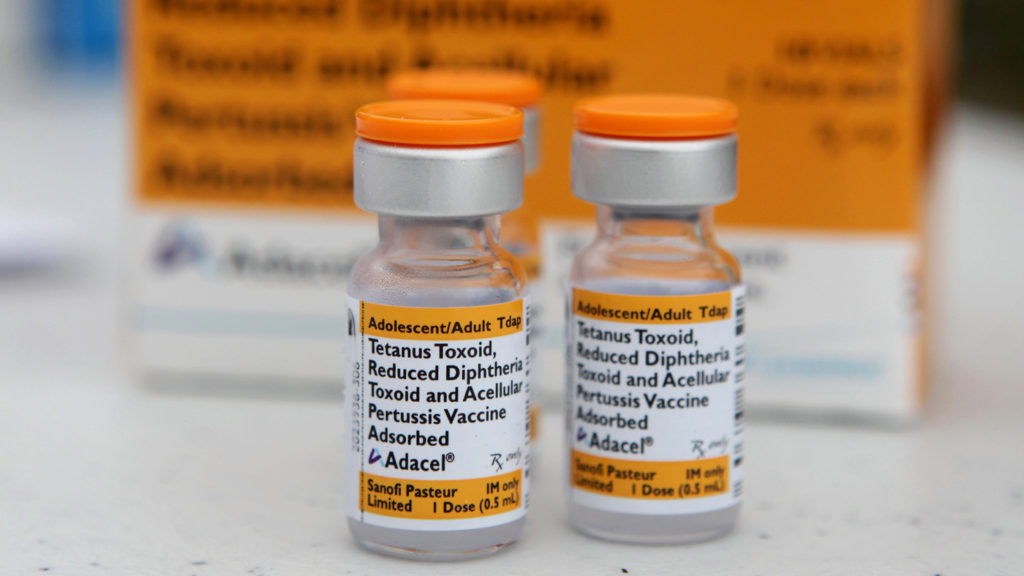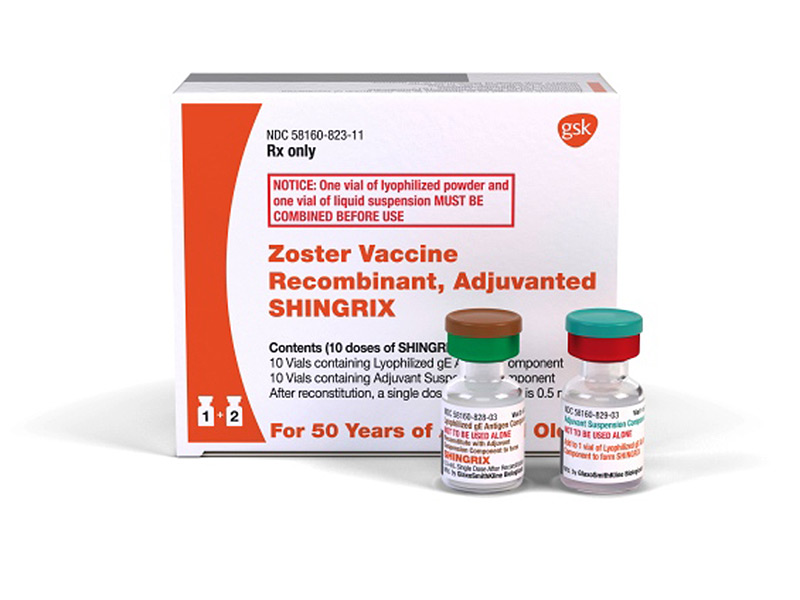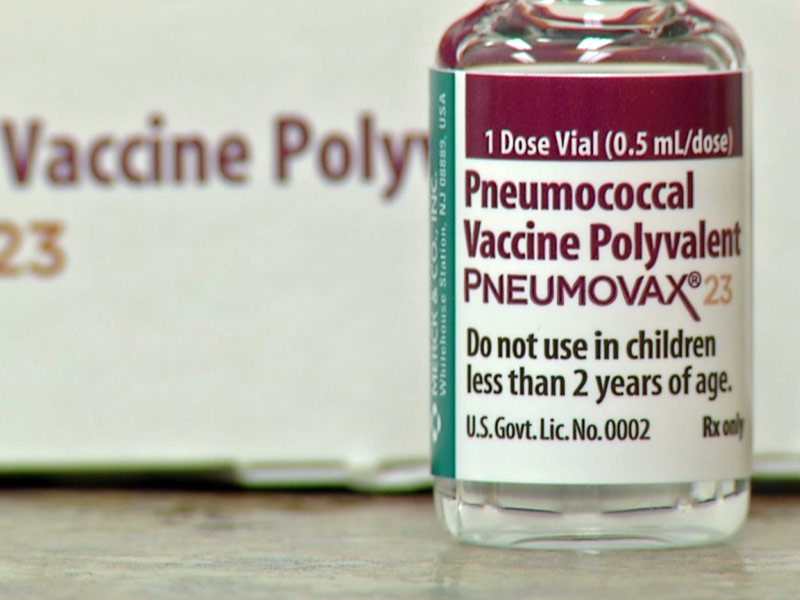What is the recommendation for adult vaccines?
Thanks to advances in vaccine medicine, we live in a world where our immune systems can be taught to fight off a disease before we fall ill. As adults age, however, their immune systems begin to weaken, limiting the response to infectious bacteria and viruses in their bodies. Adult vaccines boost immune response and decrease likelihood of falling ill.
Although you might have stayed on schedule for immunization as a child, protection provided by vaccines begins to wane over time. It is true that vaccination does not guarantee protection against an illness, but the increased protection does mitigate risks posed to yourself and your loved ones.
The CDC recommends that healthy adults aged 19 and older who are up-to-date with their childhood vaccinations receive the flu, Td/Tdap, shingles, and pneumococcal vaccines. If you have medical conditions which you believe might increase the risk of contracting a vaccine preventable illness, take the CDC’s Adult Vaccine Quiz.
Influenza Vaccine
Influenza, or the flu, is a contagious respiratory illness caused by a viral infection of the nose, throat, and lungs. The virus travels from person to person through infectious droplets expelled from the nose or mouth, but chances of contracting the virus decrease to between 40-60% with the administration of a flu shot. Recommended once each year, influenza is the most frequent of the adult vaccines.
According to CNN, the vaccine typically protects only 50%-60% of those immunized. While the influenza vaccination does not guarantee protection against the virus, medical professionals maintain it is still the best way to protect yourself against the flu.

For people 65 years and older, there is an even greater risk of severe flu disease. The CDC estimates that between 71-85% of flu-related deaths and 54-70% of flu-related hospitalizations occur among this age group.
The Fluzone High-dose, recommended for those above the age of 65, is four times the strength of a regular flu shot, intended to invoke a stronger immune response in the recipient. One study found the high dose injection to be 24.2% more effective than the regular injection in adults older than 64.
Common side effects associated with the flu shot include: (1) Soreness, redness, or swelling where the shot was given; (2) low grade fever; (3) muscle aches; or (4) toughness/itching at the injection site. These reactions typically present soon after the flu shot and last one to two days.
If you experience a life-threatening allergic reaction, such as (1) breathing problems; (2) hoarseness or wheezing; (3) hives; (4) paleness; (5) weakness; (6) increased heart rate; or (7) dizziness, seek medical attention immediately.
Td/Tdap Vaccines
Tetanus, the “T” in Tdap and Td, is unlike other vaccine-preventable diseases in that it is not spread through human contact. The bacteria that causes Tetanus enters the body through breaks in the skin – like a cut or puncture wound – and can be found in soil, dust, or manure.
Most often, individuals who are infected with tetanus experience stiffness in the jaw, neck, and abdominal muscles; as well as difficulty swallowing and muscle spasms. In some cases, fever, sweating, elevated blood pressure, and increased heart rate also indicate a Tetanus infection.
Diphtheria, the “D” in Tdap and Td, is a highly infections bacterial disease caused by Corynebacterium diphtheriae. Often life-threatening, Diphtheria can affect the respiratory (involving the nose, throat, and tonsils) or cutaneous (involving the skin) systems.
Symptoms of Diphtheria often include weakness, sore throat, fever, and swollen glands in the neck. As the bacteria embeds itself in the lining of the skin or respiratory system, the toxin released destroys healthy tissue. The infected tissue then forms a gray coating that can build up in the throat or nose, making it difficult to breathe.
Pertussis, the “P” in DTaP, also known as Whooping Cough, is a highly contagious respiratory tract disease caused by Bordetella pertussis. These bacteria can live in the mouth, nose, and throat, making it easy to spread through droplets produced by coughing or sneezing.
Pertussis symptoms generally occur within 7 to 10 days of infection and include mild fever, runny nose, and a cough. In most cases, what starts as a mild cough develops into a paroxysmal cough over time, followed by whooping.

The DTaP vaccination is licensed only for infants, adolescents, and children under the age of 7. For adults seeking protection from Diphtheria, Tetanus, and Pertussis, Tdap was developed. The CDC recommends a single dose of Tdap for people between the ages of 11 and 64.
Td, one of the adult vaccines recommended every ten years following initial DTaP or Tdap vaccination, protects against Tetanus and Diphtheria, but not Pertussis. If unsure of your vaccine history, it is recommended that adults first receive a dose of Tdap, then the Td booster every 10 years following.
Side effects of vaccination vary by case, ranging from redness and swelling at the site of the injection, to hives, swelling of the face and throat, a quickened heartbeat, dizziness, or weakness.
Shingles Vaccine
Shingles, also known as Herpes Zoster or Zoster, is a painful skin rash that usually presents on a single side of the face or body. Caused by the same virus that causes the chickenpox, Varicella Zoster, shingles typically affects those above the age of 50, and is significantly less common in younger populations. Shingles can only be contracted by someone who has already introduced the chickenpox virus to their system.
The shingles rash usually lasts between 2 to 4 weeks, and is often accompanied by fever, headache, chills, and an upset stomach, in addition to pain. Roughly 1 in 5 people find that their pain continues long after the rash has cleared, referred to as post-herpetic neuralgia.
Although shingles cannot be transferred from person to person, it is possible for someone who has never had the chickenpox to contract the virus from someone with shingles. This, however, is not common.

Shingrix, a new vaccine approved by the FDA on October 20th 2017, is a non-live, recombinant subunit injection given intramuscularly in a series of two doses, and, unlike some other adult vaccines, is recommended only for those age 50 and older.
Compared with the previous vaccine, Zostavax, which was licensed in 2006 and reduced the risk of shingles by only 50%, Shingrix is significantly more effective. In clinical trials, Shingrix proved 90% effective in preventing shingles as well as the chronic nerve pain associated with the virus.
The most common side effects were sore arms and pain following injection. More general side effects included muscle ache, fatigue, shivering, fever, upset stomach and headaches, and typically resolve within three days.
Pneumococcal Vaccines
Pneumonia is an infection of one or both sides of the lungs that causes the air sacs to fill with fluid and spreads from person to person through respiratory droplets. Symptoms range in severity from a phlegmy cough, to fever, chills, and trouble breathing. A person can be a carrier even if they do not feel sick.
People above the age of 65 experience more serious cases of pneumonia, as well as those with preexisting medical conditions. In the U.S. alone, 50,000 people die from the illness each year, 18,000 of those above the age of 65.
Treatment of pneumonia ranges from oral antibiotics to hospitalization, depending on the severity of the illness. Some people take weeks to recover from pneumonia.

The CDC recommends 2 pneumococcal adult vaccines for those 65 and older: first, the pneumococcal conjugate (PCV13) and, at least one year later, the pneumococcal polysaccharide (PPSV23).
The first vaccine, the pneumococcal conjugate, protects against 13 strains of pneumonia-causing bacteria and has been found to be 75% effective in preventing invasive pneumococcal disease, and 45% effective at preventing non-invasive pneumonia. The second, the pneumococcal polysaccharide has been found 50-85% effective against the 23 strains of pneumonia-causing bacteria it covers, and aids in preventing infections like meningitis and bacteremia.
Side effects associated with the pneumococcal vaccines include drowsiness, swelling at the injection site, fever, chills, muscle pain, and changes in behavior.
National Vaccine Injury Compensation Program
Adult vaccines, and those for children, are equally important parts of public health, working to save lives by preventing disease. Most of the time, vaccines are administered without any serious problems. Like with any medication, however, there is a risk of side effects, ranging from mild to serious.
For this reason, the US government created the National Vaccine Injury Compensation Program (NVICP), a “no-fault” alternative to the traditional legal system. Petitions can be filed by any individual, at any age, after developing an injury believed to be a result of a covered vaccine, if jurisdictional requirements are met.
Conway Homer, P.C. is the most experienced vaccine injury law firm in the United States. We represent clients injured by adult vaccines from all 50 states and have advocated for landmark cases that have shaped the Vaccine Program and made it friendlier and more generous to those individuals who suffer from vaccine injuries. To get in touch with our dedicated team, click here for a free consultation.


